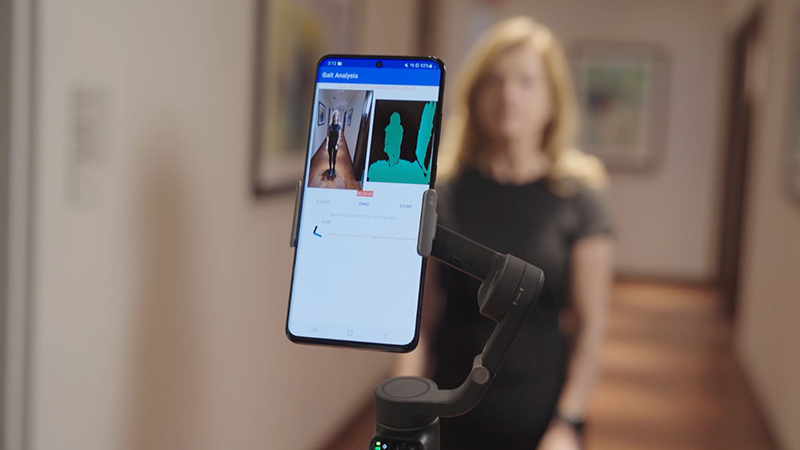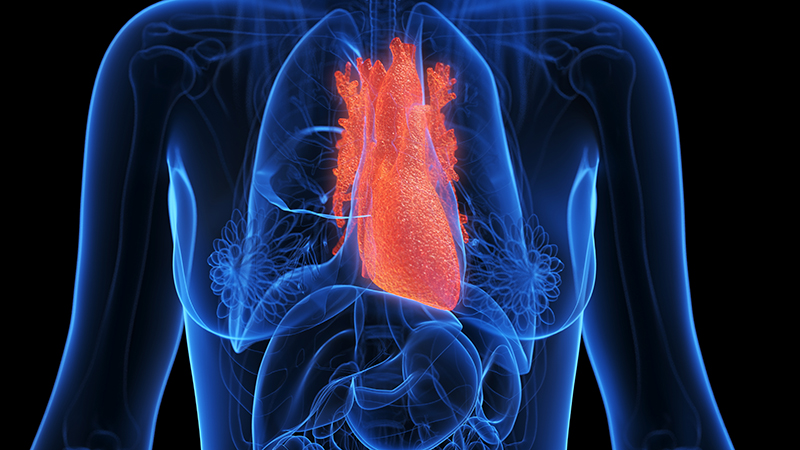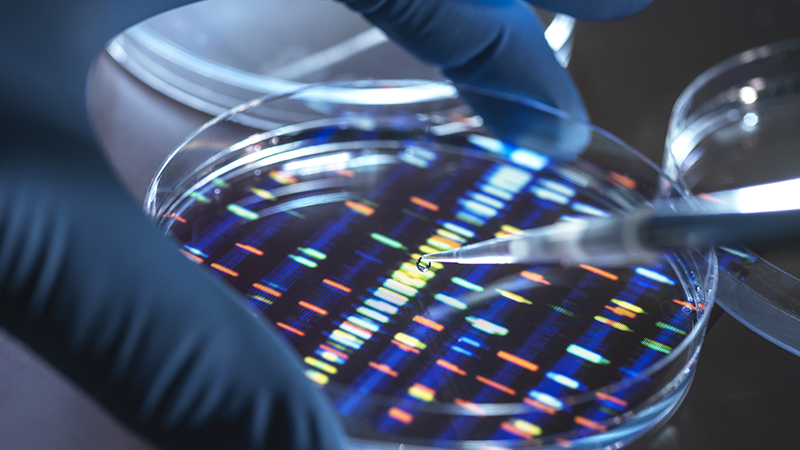What is Your Actual Age?
The Science of Longevity
Published June 2022
If you're 45 years old, that means that you've completed 45 rotations around the sun. But, how old are you really?
Humanity has been interested in slowing the aging process and finding the "fountain of youth" since the dawn of time, but conversations about longevity are especially relevant as life expectancy in the U.S. has decreased by more than a year since 2020.
"Thanks to science, the mysteries of aging are now being revealed," says Douglas E. Vaughan, MD, chair of Medicine and the Irving S. Cutter Professor of Medicine at Northwestern University Feinberg School of Medicine, and co-director of Potocsnak Longevity Institute at Northwestern Medicine with Northwestern Medicine Infectious Disease Physician Frank J. Palella, MD. "The biology that drives the aging process is being demystified right in front of our eyes to the point that it's conceivable to think about slowing the pace of aging, turning the clock back and altering the course of someone's lifespan."
Thanks to science, the mysteries of aging are now being revealed.— Douglas E. Vaughan, MD
Biological Versus Chronological Age
Chronological age is how long you have existed. Biological age is how old your cells are.
Sometimes these two numbers are the same for people, but everyone ages at different rates.
Your healthspan is the period of life where you are free of any aging-related disease. Dr. Vaughan and the Potocsnak Longevity Institute are aiming to increase the human healthspan by slowing down the aging process to push back the onset of aging-related diseases.
Aging-Related Diseases
For many diseases, the most important risk factor is biological age, meaning that if your cells are older, they are more susceptible to a variety of diseases, such as:
- Lung disease
- Chronic bronchitis
- Pulmonary fibrosis
- Diabetes and other metabolic disorders
- Cancer
- Cardiovascular disease
- Dementia and Alzheimer's disease
"For most people, if you live long enough, you're going to get an aging-related disease like high blood pressure," says Dr. Vaughan. "There's a quantifiable alteration and deterioration in function as you age."
Aging on a Cellular Level
You can see some signs of aging with the naked eye — gray hair, wrinkles, limited mobility — but aging really happens on a cellular level.
As your cells age, they eventually enter a phase called senescence, when they lose their ability to regenerate and repair themselves. Environmental factors like stress, or genetic factors like family history can trigger senescence in your cells.
"In the last 20 years, we have unraveled the biology of senescence to the point where we are able to see a fingerprint of the molecular markers of biological age," says Dr. Vaughan.
Telomeres
Chromosomes are structures that carry your DNA, which is the blueprint for your cells. Telomeres are groups of molecules called nucleotides on the ends of your chromosomes that act like bumpers, protecting your chromosomes from deterioration.
Every time your cells divide for normal repair and regeneration (which is all the time), your telomeres get shorter, which means they get shorter as you age. Research suggests that if you have shorter telomeres, you are more likely to die early or develop a disease like a neurodegenerative disorder.
In fact, there are people with short telomere syndromes (STS) who have genetic mutations that result in rapid aging due to short telomere lengths.
DNA Methylation
Humans have an estimated 30,000 genes, which carry the instructions for making proteins that make up your body and carry out all of its functions. Genes can be turned on or off like light switches. When your cells replicate and repair, a process called DNA methylation can occur. DNA methylation doesn't alter or mutate your genes, but instead changes how you express your genes.
In short, DNA methylation can turn your genes on or off.
Examining DNA methylation is part of epigenetics, the study of how your genes are expressed based on your lifestyle and environment. This is important, because you don't age in a vacuum. A variety of external factors contributes to how you age, including lifestyle, stress and even access to health care.
DNA methylation can also be a very precise predictor of your biological age.
"Someone who has diabetes will have a very different DNA methylation pattern than someone who doesn't. Someone who smokes cigarettes will have a different DNA methylation pattern than someone who doesn't," says Dr. Vaughan. "DNA methylation can be reversed by lifestyle changes. You can alter your fate with diet and exercise, for example."
Your actual age
Scientists may be able to measure your biological age in the not-so-distant future.
"We are not far away from having very precise measures that allow us to determine someone's biological age," says Dr. Vaughan. "We're optimistic that we'll soon be able to tinker with the biology of aging so that people can live longer healthspans."
Learn more about what Northwestern Medicine researchers are discovering about aging.






